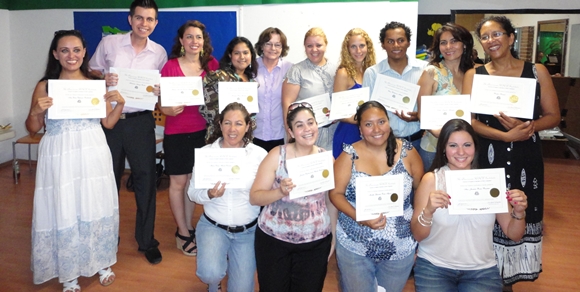For TESOL teachers and those interested in pursuing a career in English and journalism, the world is full of exciting opportunities. Teaching English abroad is no longer confined to traditional classroom settings. With the rise of digital media, journalism, and cross-cultural communication, new doors are opening for TESOL-certified teachers who also have a passion for writing and reporting. In this article, we’ll explore how you can leverage your TESOL certification to tap into global job markets in both English teaching and journalism, and discover how these fields intersect in fascinating ways.
The Growing Demand for TESOL-Certified Teachers
English remains the global language of business, diplomacy, and international communication, which means that the demand for English teachers continues to grow worldwide. TESOL certification is your passport to an array of job opportunities across continents, and many countries are actively seeking certified professionals to fill English teaching roles. Whether you’re interested in working in bustling cities or exploring remote villages, a TESOL certificate allows you to teach almost anywhere in the world.
But did you know that TESOL certification can also help open doors to journalism careers? Many journalism jobs, particularly in non-English-speaking countries, require strong English communication skills, and those with TESOL credentials can combine teaching with freelance writing, content creation, or reporting.
Global Job Opportunities in English and Journalism
- Teaching English in International Schools International schools offer excellent opportunities for TESOL-certified teachers, and many of these institutions integrate English with other subjects, including journalism. Teachers in international schools can often lead extracurricular activities such as school newspapers or media clubs, where they help students develop writing, reporting, and broadcasting skills in English.
- Top Destinations: Asia (especially China, South Korea, and Vietnam), the Middle East (UAE, Saudi Arabia), and Europe (Germany, Spain).
- English and Journalism in Higher Education Universities around the world offer degrees in English and journalism, and they seek TESOL-certified instructors to teach academic writing, media studies, and research communication. These roles often involve training students not just in language skills, but also in how to craft compelling stories, articles, and reports.
- Top Destinations: North America, Australia, New Zealand, and Europe (especially the UK and Ireland).
- Freelance Writing and Content Creation With the boom in digital media, there’s a high demand for content creators who are proficient in English. TESOL teachers can take on freelance journalism, blogging, or copywriting while teaching. Platforms like Medium, LinkedIn, and Upwork allow teachers to share their insights, travel experiences, and professional expertise through articles and reports. Many TESOL teachers also write travel blogs, covering their teaching experiences in various countries.
- Top Destinations: Anywhere with a stable internet connection! Digital nomad hotspots include Thailand, Portugal, Mexico, and Colombia.
- Reporting for English-Language News Agencies If you have a passion for journalism, TESOL certification can lead to opportunities with English-language news outlets around the world. Many countries have English-language newspapers, magazines, and news agencies that need writers, reporters, and editors. These jobs require excellent English skills, cultural sensitivity, and the ability to communicate across borders—skills that TESOL-certified professionals often excel in.
- Top Destinations: Middle East (Qatar, UAE, Saudi Arabia), Asia (Japan, Singapore), and Africa (South Africa, Kenya).
- NGO and Development Work Non-governmental organizations (NGOs) and international development agencies often seek TESOL teachers who can also contribute to their media and communications efforts. You might be teaching English to staff in developing countries, helping locals improve their writing skills, or even reporting on field projects. These positions are particularly rewarding if you’re passionate about making a positive impact on global communities.
- Top Destinations: Africa (Kenya, Tanzania), Southeast Asia (Cambodia, Myanmar), and Central America (Guatemala, Costa Rica).
Why TESOL Certification is Key
TESOL certification is essential because it equips you with the teaching methodologies, classroom management skills, and cultural understanding needed to succeed in diverse settings. Even if your goal is to eventually work in journalism, TESOL certification can enhance your job prospects by providing a solid foundation in communication, pedagogy, and cross-cultural interaction.
The certification also demonstrates a commitment to professional development and an understanding of language acquisition principles, which are valuable in both education and media fields. Whether you’re interviewing non-native speakers for a news story or explaining complex grammar concepts to students, TESOL training will enhance your ability to connect with and support others through English.
Fun Fact: The Intersection of Journalism and English Teaching
Did you know that some of the world’s most famous writers and journalists started out as English teachers? For instance, George Orwell, author of 1984 and Animal Farm, taught English in a boys’ school in England before his writing career took off. Similarly, J.K. Rowling, author of the Harry Potter series, spent time teaching English as a foreign language in Portugal. Their experiences teaching English influenced their storytelling, proving that these two fields are deeply interconnected.
How to Get TESOL Certified
Becoming TESOL certified opens the door to many of these exciting career paths. TESOL certification programs, such as those offered by the American TESOL Institute, provide comprehensive training in teaching English to speakers of other languages. You’ll learn the theory and practice behind language teaching, including lesson planning, classroom management, and assessing language proficiency.
Courses can be completed online or in-person, allowing flexibility depending on your location and schedule. Once certified, you’ll be qualified to teach English across the globe, and you’ll have the confidence to explore related fields like journalism, content creation, and media.
Conclusion: Blending Your Passions for English, Journalism, and Teaching
TESOL certification provides an incredible opportunity to teach English around the world, but it can also open doors to global journalism and content creation. By combining your passion for language with your love of storytelling, you can create a career that is both fulfilling and adventurous.
Whether you’re writing for a travel magazine in Tokyo, teaching media literacy in a university in Mexico, or freelancing from a beach in Thailand, the skills you develop as a TESOL-certified teacher can lead you to diverse and exciting career opportunities. So why wait? Start exploring the world of English and journalism today!
Explore global job opportunities in the field of English and Journalism, plus learn about TESOL certification for teaching English to speakers of other languages.



